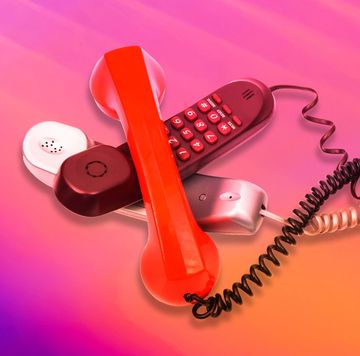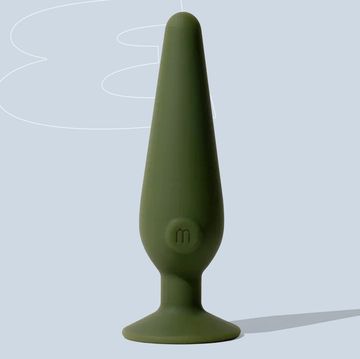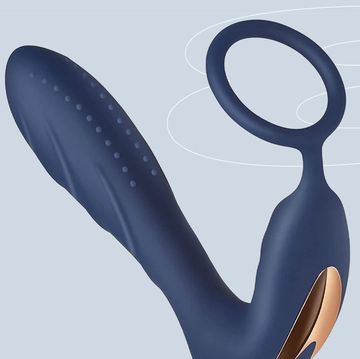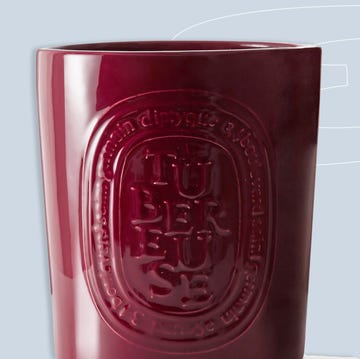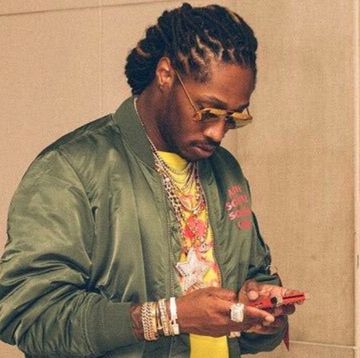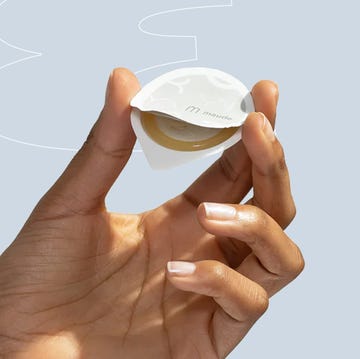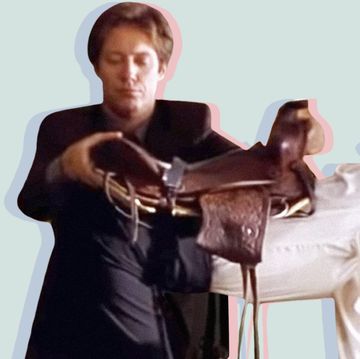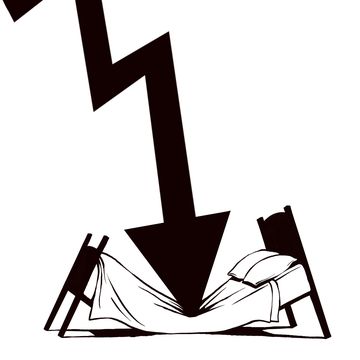Recently, a few people told me that I looked good, that I'd lost weight. It made me feel good, then it made me feel bad. It was a compliment, sure. But then I realized it's just something you say to a big guy to get the conversation rolling. It might have even seemed the perfect compliment upon delivery, but it only worked to make me conscious of how I looked, or how I used to look. I just didn't want to hear it. It made me think, though. Had I ever given a compliment that made someone feel worse? Or that had no effect at all? I decided to learn how to deliver good ones. I devised a plan in which I would give a lot of them in a short time and work to figure out exactly how the best compliments worked, and why. I started outside a noodle shop in a Big Ten college town, on a wide boulevard of sidewalks newly laid. I knew no one, and I had nothing in particular to gain. I vowed to walk the full six blocks to a bank clock and on the way give each person I saw my own special measure of attention. I planned to use short sentences, to be simple and direct. A young Chinese woman in a brilliant white cotton dress approached. A tiny belt was cinched around her waist, thin enough that it might have been made from an especially long bootlace. That seemed a light and functional accent on a soup-hot day. Smart. I wanted to be sure, though, so I squinted for a better look, and before I knew it, she was three, six, nine steps closer and seemed aware that I was staring at her waist. So I rushed it. "I like your belt," I said. And that spooked her. She cleaved her arms upward, gripping her purse against her breast, turning her near shoulder forward, slipping past me as if we were in a crowd. She was gone.
A short sack of guts in a golf shirt followed right behind her, wolfing a leafy sandwich from a grip of wax paper. This one was trouble. Lousy shoes, untucked logo shirt, unkempt walrus mustache, cell phone clipped to his belt. Don't mention the sandwich, I thought. You'll make him feel like a pig. But he moved in and that was all I had. I blurted, "Looks like a great sandwich!" The guy squinted, mouth half-jammed with capicola, and murmured, "Shyah, not for you."
Three guys, muscular and neat, upholstered in vague business casual, popped onto the street from a diner, thumbing at their phones. I went broad, giving them an all-in-one shot. "You guys look good," I declared. The doors behind them hadn't closed; they hadn't registered my presence. They turned for a look at me. But my follow-up wasn't ready. I plunged forward. I knew I couldn't comment on just one tie without somehow commenting on the other two as well. So I pluralized. "Nice ties," I said.
"Dude," the oldest one, a neatly kept guy in his mid-fifties, his hair entirely white, sneered. "Fuck you."
"I mean it," I stammered. A kind of panic lit in my gut, then in my ears; it was hard to take it all in, to come up with things so quickly.
"Get a job, man," the second said.
The best compliment I ever got came in 1979, after I sang three verses of "Home on the Range" over a hand truck full of busted-up Sheetrock. I was riding in the steel case of a freight elevator, down seventeen floors through an office tower in Rochester, New York. Something about the acoustics worked in my favor and I nailed it. The guy riding with me, a college kid with a mustache named Dave Merrill, stared dumbly at me when the doors caught at the bottom floor. "Wow," he said. "You have a good voice. I never even knew that was a sad song, you know?" He slapped a work-gloved hand against his chest in a single thump of applause and leaned into the weight of the hand truck. "I felt that," he said, shaking his head.
It was a fluke, a moment I should have forgotten by dinner. But I didn't forget, and I haven't — not because I particularly understand that cowboy's lament or because I discovered my talent in that moment. I simply remember the compliment, the urgent, almost involuntary manner in which it was offered, like something that needed to be said before he wouldn't let himself believe it anymore.
I tried to harness whatever Dave gave me in that moment. I had been scaring people, so I changed up my routine. I made myself walk jauntily, like a guy in a straw hat, calling out compliments short and hard. Nice coat. Nice tie. Great outfit. Like your hair. Great glasses. It made me feel snappy. Nice purse. Nice dog. Nice shoes. I learned to wait for eye contact, but otherwise I kept it moving. I pointed to people, clicked my cheek, even winked sometimes, like a flimflam man. I didn't register much except details I could comment on. People's responses couldn't slow me down if I didn't wait for them. I kept count and tallied on a steno pad: That first week, I knocked out just less than eleven hundred compliments.
But I was still rushing. If a worthwhile compliment needs anything, it is the weight of realization behind it. So I fell back, watched people go about their jobs, the quality of their interactions, the way they looked at their reflection as they walked the street. I registered. And I learned, or started to learn, that a compliment is a partnership, because the pleasure of giving it lies in its effect upon the person receiving it. What I'd been doing was little more than a salesman's trick, poorly played. I'd succeeded only in making myself bold enough to broadcast my judgments — dry little seeds spun out on the lawn of humanity — on the fly. I had to risk a little connection.
One rainy afternoon, I went to a crowded street corner in Manhattan and started again. The landscape of the city looked sturdy and polished, my heart was open, my head right. I walked the box of crosswalks at that intersection for two hours, waiting at each corner for the light to change, looking — really looking — at the people around me. I poached them across the street, crossing perpendicular to their approach, sidling up as they watched the light change. I abandoned simple and direct, gave up on the humble declarative expression. A true compliment is a complex expression of unrequired appreciation — how could three words do the job? It worked better when I grew more audacious:
"You seem really happy. That's a pleasure to see."
And more concrete:
"All I can say is, that is a classy umbrella. It looks old-timey and right for you."
And unafraid of a little complication:
"My mother always wanted me to wear a corduroy coat like that. Now I see why."
People responded. Sure, some passed without acknowledging what I said, but most smiled, thanked me, gave firm little nods. I could sometimes see them stand up a little straighter. One guy told me a story about where he got his tennis racket, and a woman noted that the purse I liked was a knockoff but that her cousin Celine had an even worse one. A kid told me his watch was his grandfather's and asked if I wanted to see the inscription. Some of these people turned to me and waved when they left. They locked eyes.
I still dumped a lot of compliments on the world — fifty-four that day. But this was the first moment — 1,750 compliments in — when the pleasure of the compliment came back at me in a lush, dizzying fashion. It made me feel good.
I got bolder. One afternoon, I stood next to a little toothpick-chewing guy wearing a black Members Only jacket over a T-shirt that read I LOVE FIREWORKS! He was watching people do tai chi in a park. Under his arm: a sheaf of pink invoice sheets. In his hand: a box of dust masks. I gathered that he was worried about work, but I couldn't quite tell what his work was yet.
"You seem ready," I said. "You look like a guy who's prepared."
He clucked at that, one little laugh bit off in the center of his chest. "Prepared for the end of the world?" he said.
That just kind of sat there.
Then there came a day, as there does for every man, when I stood on a street corner, next to a lithe twentyish woman in a tight jogging suit, who stared indifferently into the immediate abyss of a short city distance. There was a lot to note. Huge sunglasses, for one thing, each lens big as a grapefruit. Hair precisely pulled into two buns wrapped as tight and small as squash balls. She had an expensive novelty watch on one wrist, in the shape of a human hand, and a picture of a baby dangling off an expensive gym bag, out of which peered a little dog, a toy schnauzer that absorbed the world quietly between eyeblinks. Great neck on this woman, too. In front, lots of cleavage. Very nice. Oh, and she smelled good. For a second I allowed myself to believe that I'd somehow developed a hypersensitivity to detail in the people around me. That this might give me some advantage with women. But then I realized that I was simply staring at a hot woman without any jangle of self-awareness. But, with so much of her begging for comment, I went safe.
"What a great dog," I said.
I was off my game. The woman didn't look at me. She shrugged and cracked a weary smile, rubbed the dog's head and stared straight ahead. I understood then that she heard that same thing in one form or another a dozen times a day, that she didn't give a good goddamn what I thought about her dog — great dog, cute dog, what an angel — just so long as it was exactly what she expected me to think. Same with her watch, her rings, her neckline, her nails, her hair, her shoes. Weak compliments like the one I lobbed neither surprised nor propelled her. In some way, all of this allowed her to not see me, to block me out as leering, envious, horny. Whatever. I only said I liked her dog.
Sometimes the exercise led to other kinds of trouble. Once, a guy around sixty pulling a little wagon full of hardback books walked up next to me. He wore a blue golf pullover with a St. Andrews logo. "Nice," I said, nodding to the logo. "Only a lucky man gets to play the Old Course." He looked back at me, face as blank as an owl's, seeming perplexed by the sound of my voice in the midst of the city. "St. Andrews," I said, nodding to the logo over his heart. He looked down, then up.
"This's my brother's coat," he said. "I don't play golf."
I sighed. "Okay," I said. "Then tell him I said he's lucky to have played it."
"He's dead," the man said. Of course he is, I thought. I'd walked right into the fan blades on that, by persisting, by refining my initial compliment, by trying to square-peg it in a round hole. The little man and the wagon. I kicked myself for not looking longer. I should have said "nice wagon" and left it at that. But the guy had engaged now. "I don't even know if he ever played golf," he said. "I'm just selling his books." He gestured back to the wagon, which rested against the interior lip of the curb at Fifty-third and Lex. Then he turned the tables. He complimented me. "You're a smart guy," he said. "Do you like books about spies? I got a lot of books about spies I have to sell." He leaned over and lifted a book cover like a coffin lid. When I relented and bought a le Carré for five bucks, he complimented me again. "Good choice," he said. "You know your spies."
I could smell the empty old apartment on him. And the death, too, I guess. The guy was probably bringing the books to a secondhand store, wagonload by wagonload. This was more than I bargained for. There's some risk in what a compliment will bring.
Finding the perfect compliment isn't a riddle at all. It's not as though there's one for every person at every time. It's a matter of finding the right moment rather than insisting on one.
I caught up with a guy at Heathrow in London to compliment him on his small and eminently sensible luggage set. "You make travel look elegant," I said. "Manageable." He grinned and told me about his haberdasher.
To a shopkeeper on the street outside my summer sublet: "I love the way you wash the sidewalks every morning. It seems like you care about the street in a way most people have forgotten." He took a little bow.
To my solicitous and kind dry cleaner: "You do more with the collars of my shirts than I even knew possible." She thanked me, calling me by my girlfriend's name.
To an intervals runner in Central Park, who ran the same two-hundred-yard sprint eleven times as my son and I watched from a bench: "I just want to stop you and say that was the most athletic thing I have ever witnessed." Deep in the waves of his panting, he held up a hand in thanks.
In the end, the compliments I came up with were tailored and quirky in the best way. Most of all, they were thorough. I liked delivering them. I enjoyed plumbing the reactions. I sometimes considered for days what I would say before delivering one. Or I'd run after someone for my one chance to say what needed to be said. I'd sit in the broad doorway of the coffee shop for an entire day, feet in the sunshine, shoulders in the cool. I did not go on the hunt anymore. I scanned for a single, worthy compliment in the craw of each day. One day a father and son, who was around four, came in and sat at the end of the counter. I had seen them before. No one else took particular notice. A thread of music wound its way down from the speakers. These two just sat there, quietly staring forward. The father folded his hands, the boy waited patiently for the waiter. Soon I could hear them discussing the music, discussing some bike they'd seen. After a while it occurred to me that I sometimes watched a dozen parents a day come into the shop, often in those very seats. Normally the child hopped into the seat, swung himself vigorously, hoopty-dooped himself, sang, blathered loudly about what sort of five-dollar hot chocolate he wanted. Attention is cheap when you're four, and almost as cheap when you ride herd on a four-year-old.
These two were different. I stared at their backs for ten minutes and listened. Nothing particularly profound — they were breaking down the music, the old Doors number "People Are Strange." The kid seemed to get it — "faces look ugly when you're alone" — but even that seemed utterly between him and his father.
I walked over to the counter. The kid was drawing now. The father seemed to be regarding his boy, but there was no show in it. Nothing public or demonstrative. The two of them had a salient rope of mutual confidence running between them. I spoke then, because I knew what I wanted to say.
"I have a couple of boys. I like the way you speak to your son. My experience, that'll always serve you, and him," I said. "You'll be men together because of that." I had never spoken this way, not to a stranger.
The man dipped his head a little, then thanked me, smiling, a little unsure. He looked at me as if expecting me to carry on. But I didn't have any more. I'd just wanted to say what I'd come to realize from seeing them like that. It was what needed to be said. And it made me feel good to say it out loud. Him, too — I could tell. Later he'd quietly tell his wife what the guy in the coffee shop said, bemused but proud. He felt good. I knew all this at that moment in the coffee shop, as the compliment completed itself in the space between us.


